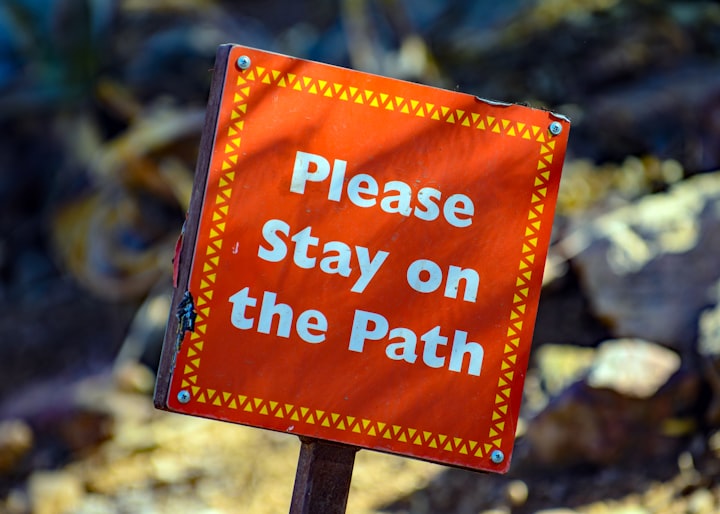The Etiquette of Email
I am by no means an expert on email etiquette, but, then again, who is? Besides, as a philosophy professor, center director, and pastor, I get my share of email, so I make up in volume what I lack in wisdom.

In what follows, I offer my thoughts on how to begin an email, how to write one, and how to tie the email thread into a bow at the end. I am by no means an expert on email etiquette, but, then again, who is? Besides, as a philosophy professor, center director, and pastor, I get my share of email, so I make up in volume what I lack in wisdom.
To start an email, you have to judge how close you are to the recipient. Sometimes that’s easy (Dear Mom), but sometimes it’s not. Then there’s the email itself: The text should be formal but conversational. How should we strike a balance? Finally, knowing how to end the conversation requires, above all else, patience.
1. The Familiarity of Address
Question: How personable should you be at the start of an email, especially when communicating with someone you do not know? Answer: We should recognize social norms in our emails, though we should strive to be more approachable, and not less.
My favorite way of addressing a stranger who seems to be in my social circle is to use the first name with the parenthetical if I may attached to it. So, for example, if I am writing Professor Bilbo Baggins of Shire College for the first time, I’ll write Dear Bilbo (if I may). I extend the same courtesy to those who write to me. If a professor or research fellow at a think tank writes to me saying Dear Dr. Bruce or Dear Professor Bruce, I’ll respond by saying Please call me Jay.
Only once has someone responded to my more familiar approach with distance. I wrote a professor at another institution as First Name (if I may), but I received Dear Dr. Bruce in reply. So (sigh) I offered a more formal reply in return. Testing these waters can be very helpful, because they offer potential clues to a person’s self-regard. If I can call someone in the House of Lords by his first name but a professor at another institution wants to maintain formalities, then I want to bring the baron to JBU, and not the professor.

Email, though an opaque business, nevertheless says something about how people will interact face to face. I tell my students that I want to bring — technical philosophical term approaching — supercool people to campus. By supercool I mean someone who understands how to interact with human beings and how to treat students with respect, of course, but also kindness.
Yes, yes, someone can be more formal without being a jerk. And, of course, it’s not always appropriate to address people we do not know — or even those we do know — by their first names. We live in an age uncomfortable with social distinctions, so much so that the language of “superiors, inferiors, or equals” — at home in the Westminster Shorter Catechism’s discussion of the Fifth Commandment — strikes us as odd, antiquated, or even immoral. But we should not shrink from appropriately addressing our superiors with deference or recognizing the responsibility of those of us in a superior social situation to make others feel more comfortable. Even still, let’s not be prissy about it.
2. The Formality of the Email Itself
Closely connected to familiarity, but conceptually distinct, is what I’ll call formality. Everyone says to strike a professional tone, but these rules should be broken if the situation demands it. For example, we are told to avoid ALL CAPS (and rightly so, generally speaking), but if someone asks an outrageous question in an email thread, then NO! is a more appropriate response than no. Truly horrible things should be shouted down.
But good writing — even good professional writing — has a friendly, conversational tone. No one wants to slog through an email that reads like Immanuel Kant’s Critique of Pure Reason. So don’t write emails like that.
Instead, write emails as though you are having a conversation with someone — because you are. Let the content of the email, and not your desire to make an impression, determine how technical or formal your writing is. We should write one way when explaining to someone the importance of the order of quantifiers in predicate logic, but we should write another way when saying we will attend the office Christmas party.
If the email is sensitive in nature, then read it aloud. How does it sound? How will it sound to the other person? We often sin in excess or in deficiency. We write long, stylized paragraphs, when a yes will do, or we write yah, when decency requires us to explain ourselves further or to be more sympathetic to the question. I am not better than you here, and I may well be much worse.
Finally, if the issue is simply too technical or too sensitive, you should not be emailing at all, but speaking face to face. I have learned the hard way that arranging a face to face meeting can be better for all involved. A meeting can even be more efficient.
3. Finishing the Conversation
The email exchange goes back and forth, hopefully to your satisfaction. Question: When can you offer your final goodbye?
Answer: Don’t ask me. I think we must succumb to the relentless exchange of pleasantries to complete the conversation. Far from being artificial, though, here email reflects real life. We all recognize that saying goodbye on the phone or face to face can take much longer than we think. Not everyone ends phone conversations with “I have to go now” — just us wonderfully sociable, thoughtful people.
Most people take time, and we should give it to them. As in life, so in email. You say thank you, and your interlocutor says you’re welcome, I hope you find it helpful. You say yes, of course I do, and the other person says I am so very glad to hear it. To which you reply thank you, and then you’re off to the races. If only there were a like button . . . .

(Cough.) I would be a hypocrite of considerable distinction if I did not admit that I contribute to this problem of ending email exchanges or conversations more generally with my unending stream of continued replies. I so want people to know that I am truly grateful for their work, and I do not tell people thank you unless I am truly thankful.

